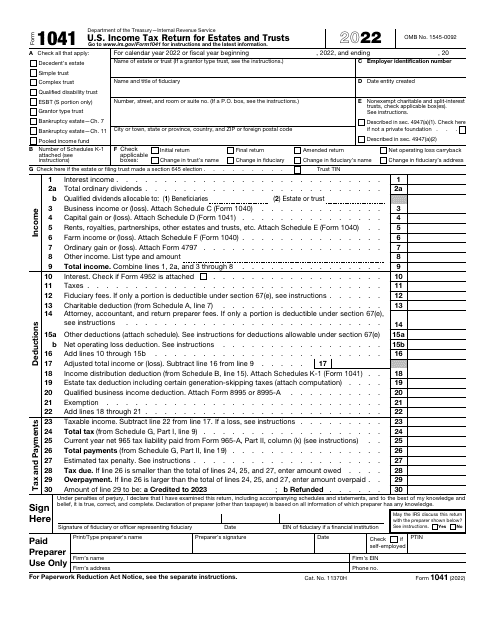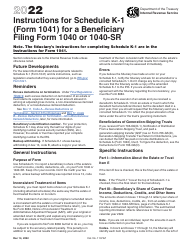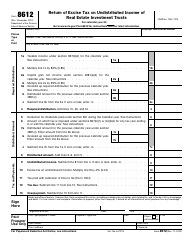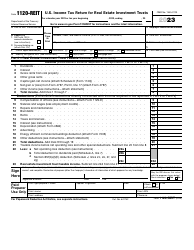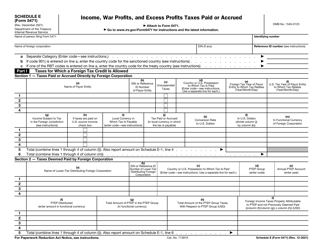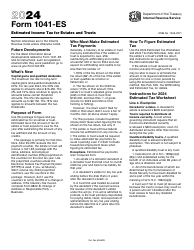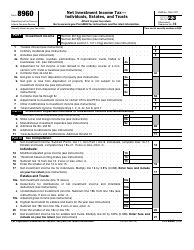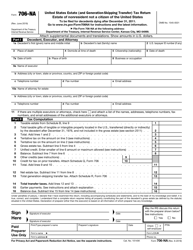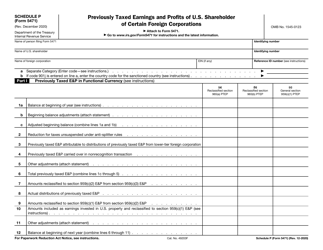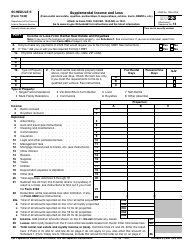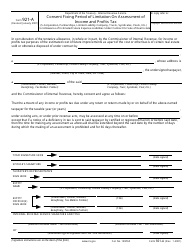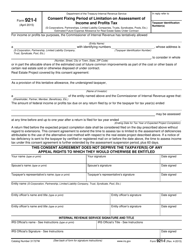This version of the form is not currently in use and is provided for reference only. Download this version of
IRS Form 1041
for the current year.
IRS Form 1041 U.S. Income Tax Return for Estates and Trusts
What Is IRS Form 1041?
This is a tax form that was released by the Internal Revenue Service (IRS) - a subdivision of the U.S. Department of the Treasury. Check the official IRS-issued instructions before completing and submitting the form.
FAQ
Q: What is IRS Form 1041?
A: IRS Form 1041 is the U.S. Income Tax Return for Estates and Trusts.
Q: Who needs to file IRS Form 1041?
A: Estates and trusts that have gross income of $600 or more in a tax year need to file Form 1041.
Q: What is the purpose of IRS Form 1041?
A: The purpose of Form 1041 is to report the income, deductions, and tax liability of estates and trusts.
Q: What is considered gross income for IRS Form 1041?
A: Gross income for Form 1041 includes all income received by the estate or trust, such as interest, dividends, and rental income.
Q: When is IRS Form 1041 due?
A: Form 1041 is generally due on April 15th of the following year, but it can be extended to September 30th with a proper extension request.
Q: Are there any penalties for not filing IRS Form 1041?
A: Yes, there are penalties for not filing Form 1041 or filing it late, including a potential penalty based on the amount of tax owed.
Q: Can I file IRS Form 1041 electronically?
A: Yes, you can file Form 1041 electronically using an approved e-file provider.
Q: Do estates and trusts pay income tax?
A: Yes, estates and trusts are usually required to pay income tax on their taxable income.
Q: What deductions can estates and trusts claim on Form 1041?
A: Estates and trusts can claim various deductions on Form 1041, including expenses related to the administration of the estate or trust.
Form Details:
- A 3-page form available for download in PDF;
- Actual and valid for filing 2023 taxes;
- Editable, printable, and free;
- Fill out the form in our online filing application.
Download a fillable version of IRS Form 1041 through the link below or browse more documents in our library of IRS Forms.
